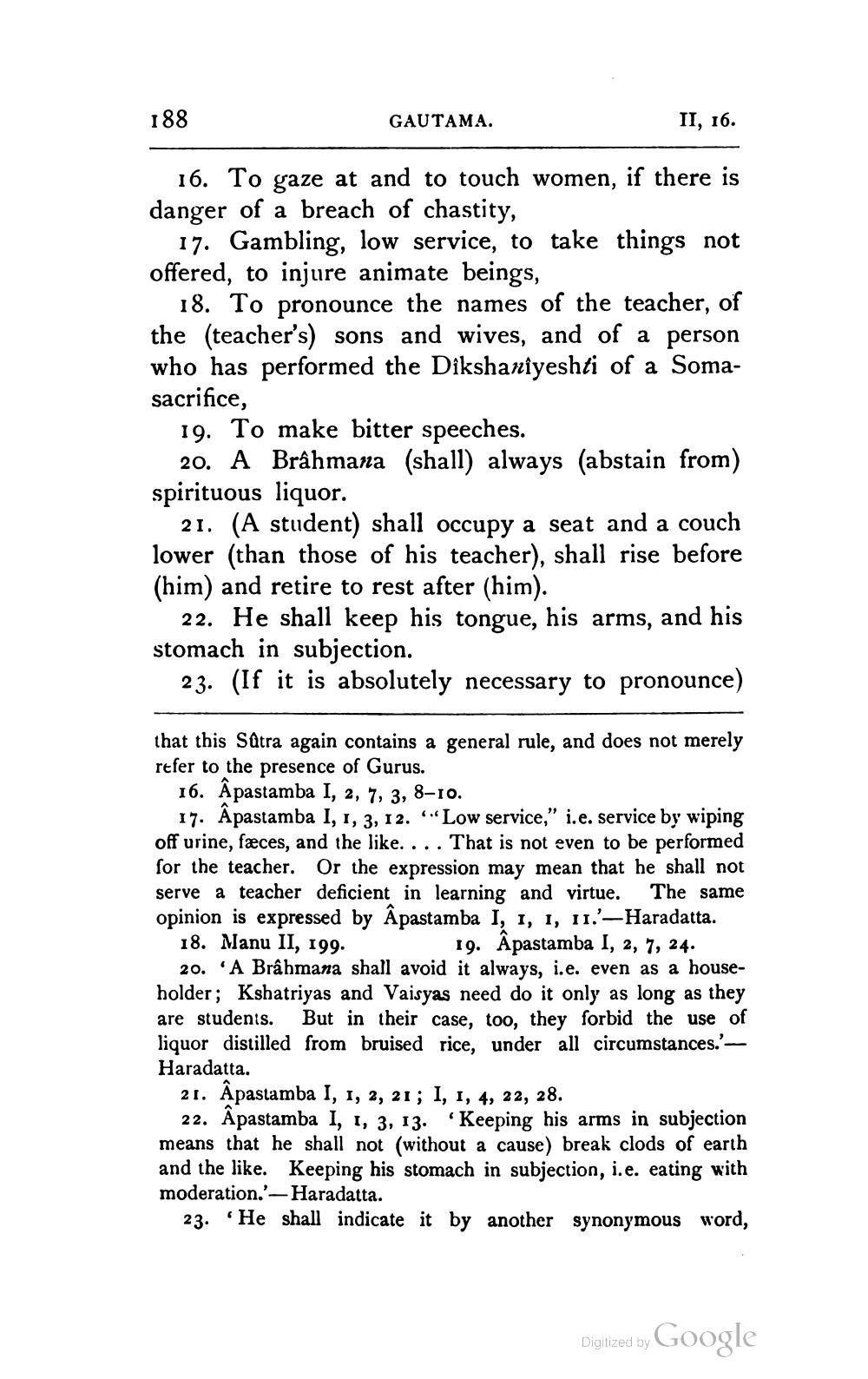________________
188
GAUTAMA.
II, 16.
16. To gaze at and to touch women, if there is danger of a breach of chastity,
17. Gambling, low service, to take things not offered, to injure animate beings,
18. To pronounce the names of the teacher, of the (teacher's) sons and wives, and of a person who has performed the Dikshaniyeshti of a Somasacrifice,
19. To make bitter speeches.
20. A Brâhmana (shall) always (abstain from) spirituous liquor.
21. (A student) shall occupy a seat and a couch lower (than those of his teacher), shall rise before (him) and retire to rest after (him).
22. He shall keep his tongue, his arms, and his stomach in subjection.
23. (If it is absolutely necessary to pronounce)
that this Sôtra again contains a general rule, and does not merely refer to the presence of Gurus.
16. Â pastamba 1, 2, 7, 3, 8-10.
17. Apastamba I, 1, 3, 12. “Low service," i.e. service by wiping off urine, fæces, and the like.... That is not even to be performed
or the teacher. Or the expression may mean that he shall not serve a teacher deficient in learning and virtue. The same opinion is expressed by Âpastamba I, I, I, 11.-Haradatta. 18. Manu II, 199.
19. Âpastamba I, 2, 7, 24. 20. A Brâhmana shall avoid it always, i.e. even as a householder; Kshatriyas and Vaisyas need do it only as long as they are students. But in their case, too, they forbid the use of liquor distilled from bruised rice, under all circumstances.' Haradatta.
21. Apastamba I, 1, 2, 21; I, 1, 4, 22, 28.
22. Apastamba I, 1, 3, 13. Keeping his arms in subjection means that he shall not (without a cause) break clods of earth and the like. Keeping his stomach in subjection, i.e. eating with moderation.'-Haradatta.
23. He shall indicate it by another synonymous word,
Digitized by Google




